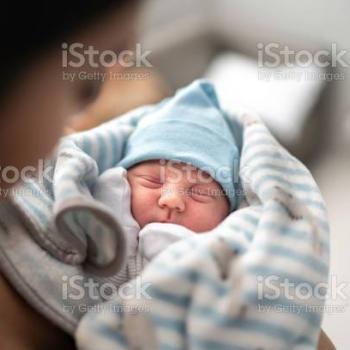
My two older sons are less than two years apart. This past summer, newly seven and nearing five-and-a-half, they had swim practice early each weekday morning. Afterwards, most days, they whiled away the hours until lunch playing endless innings of baseball—sometimes alone, sometimes with their neighborhood playmates—in our back yard.
I was often just through the screen door, watching my youngest son (then an unsteady walker, safely ensconced in his outdoor playpen with trucks and stackable blocks) and working in the kitchen. I heard feats of imaginary runners, recitations of detailed score-keeping, peals of laughter, and requests for their summer treats of choice (popsicles and Gatorade).
I also heard arguments. Lots and lots (and lots) of interminable arguments. They usually started over balls and strikes, but then devolved into broader questions of character as little boys see it: who is a cheater; who is a crybaby; who is never going to play with who ever again; and, more often than not, inevitably, who hit who first.
Most of these developmentally healthy verbal and physical tiffs—like most such childhood engagements until approximately five minutes ago, when we decided to create a self-fulfilling prophecy around children’s physical and emotional fragility—got resolved without adult interference.
Sometimes, though, I did intervene—mostly on my older son’s behalf, when his precocious and mischievous little brother crossed the line from passionate arguing into broader name-calling (and/or into orchestrating a gang-up of several kids on his big brother) and deserved to be duly penalized.
On one such occasion, my seven-year-old remonstrated with me: “It’s okay, Mom; he did not wrinkle my heart.”
Huh?
A Wrinkled Heart
It turns out that, in his years in school to date, my second grader has encountered Tracy Hoexter’s 2015 children’s book, A Wrinkled Heart, more than once.
On the most basic level, the story offers a memorable and useful lesson about kindness. A bunny named Elliot, the protagonist, has wrinkles in his heart because of brusque and unkind comments from his parent and classmates.
At breakfast, Elliot spills milk and his mother scolds him, asking, “why can’t you be more careful?” Next, another kid refuses to sit with him on the bus. Finally, a classmate says that his painting in art class is ugly.
The idea is to make literal for young children the concept of hurting someone else’s feelings. Hence the physical wrinkles in Elliot’s heart. The story is supposed to foster awareness and compassion, and thereby reduce children’s meanness to one another.
That makes sense, as far as it goes. My husband and I would be quite dismayed if one of our sons refused a perfectly nice kid’s request to sit next to him on a bus, and we would be even more disappointed if one of them offered an unsolicited and unkind opinion on someone else’s painting.
The problem with using A Wrinkled Heart as a template for emotional learning, though, is that we would be equally upset if one of our sons identified with Elliot.
Elliot is both pathologically incapable of distinguishing people that are worth listening to from people that aren’t (two of the people whose words cause his heart to wrinkle are random classmates) and pathologically anti-resilient (his heart stays very wrinkled until these people apologize, and remains somewhat wrinkled even after they apologize).
Against Hearts of Paper
For Elliot, less than supportive words from his own mother, a random kid on the bus, and a random classmate all hurt equally. It’s not just “sticks and stones may break my bones, and words can also hurt me.” It’s “certain words themselves—regardless of the source—do hurt me.” So, there is no allowance for context, in a scenario where context is everything.
My husband and I, by contrast, are trying to teach our kids what our parents taught us: that other people can “wrinkle your heart” with words only if you have deemed them worthy of sufficient respect that you care what they think. People have to earn admission into the select “what you think matters to me” club; most people do not belong there, and the default should be exclusion, not admission. (If you doubt it, take a cursory glance at social media: most people are profoundly unfit to render judgements on most things).
This is a counter-cultural lesson in a world where Elliot is depicted as an empathetic and relatable protagonist, and A Wrinkled Heart has become standard elementary school fare.
So, what can those of us that do not want our kids’ hearts to be paper in the hands of random peers on buses do to ensure that our children are kind to the increasing numbers of Elliots of the world—but without joining their fragile ranks?
I don’t have the answers; my husband and I are still earlier than not in the child-rearing journey. But, because our own parents were uniquely skilled at cultivating, simultaneously, our empathy for others and our discernment about whose opinions deserved our respect—and because we have pondered this question a great deal—I do have the following thoughts.
Building Strong Hearts
My parents told me that they loved me all the time. Like, so constantly that it was irritating. My husband’s parents did the same. In this way, we apples did not fall far from those trees. Our five-year-old is beginning to be irritated by it. He wants to discuss more interesting things without these interjections—how much we love him, how proud of him we are, how special he is, how grateful we are for God’s entrusting us to steward such a precious gift—but the interjections continue. We can never say it enough.
That consistency of validation, affection, and affirmation from parents, whose regard forms the foundation of self-possession and self-confidence, is part of how we make our kids’ hearts thicker than paper—including and especially in relation to ourselves.
In contrast to what some adherents to various trendy parenting ideals may insist, raising children well involves offering them firm discipline and constructive criticism. These imperatives require rigorous standards, logical consequences, tough tones, and clear directives.
Hearts that have been sufficiently filled with a sense of their own immeasurable worth grow resilient and strong, not wrinkled, in response to these formational challenges. We fill those hearts, and then we test and train them so that they can fill others.
Teaching Responsible Stewardship of Others’ Hearts
Only one of the three characters that wrinkles Elliot’s heart in the story has any business being sufficiently empowered by Elliot to do any such thing. That one, of course, is his mother.
Now, per the above, I am not a proponent of so-called “gentle parenting.” That said, I am a proponent of responsible parental stewardship of children’s hearts.
When one of my kids spills milk, I do not say, as Elliot’s mother does in the story, “Why can’t you be more careful?” because I don’t like the overbroad characterological criticism implied there. I asked my seven-year-old what I would be likely to say in that circumstance. His (loud) response: “Hey! Pay attention! Let’s clean up!” That sounds about right.
As parents, my husband and I are first on our kids’ lists of “people whose opinions matter.” So, we strive to live up to that lofty position. We know that, one day—and, much sooner than we’d like—we will have to earn our spots on those lists, and we hope to eventually cede our top spots to loving spouses and worthy others. We also pray that our kids earn spots on many others’ such lists—including, God-willing, one day, our own—by being loyal, thoughtful, and loving people. With this in mind, we try to cultivate in them the capacity for responsible stewardship of others’ hearts.
For example, I have explained to my seven-year-old many times that his five-year-old brother cares deeply what he thinks. This is not unreasonable, as he is not a random peer or a younger sibling, but an older sibling. Therefore, I tell him that, when he points out flaws in his little brother’s homework or drawings, it would be most helpful to do so from a position of constructive criticism and teaching.
This is hard for him to imbibe, and understandably so. In many ways, they are peers, after all. Little brother is a well-matched athletic opponent, a verbal sparring partner, and an increasingly competitive board game participant. Plus, they love each other equally.
But, for now, no matter their physical, intellectual, and affective parity, there is an emotional power imbalance. Big brother’s heart cannot be wrinkled by little brother, but little brother’s heart can be wrinkled by big brother. Big brother is, of course, not going to get it all right or even mostly right; but he can begin to at least be aware of this unearned call to emotional stewardship, and to prepare for the many other such calls to stewardship that we pray await in his future.
Teaching Discernment About Who Gets Access to Our Heart
A friend of mine recently told me that, in a class that her six-year-old daughter is taking, another little girl often offers unsolicited and unkind criticisms. The other day, one of them was directed at her daughter.
My friend asked her daughter how that comment made her feel. The daughter said that she felt fine, and explained that the girl in question said mean stuff to everyone, including the teachers.
Clearly, my friend and her husband are off to a good start in the counter-cultural work of making sure that their child does not turn out like Elliot.
Their daughter’s heart was not wrinkled by a mean comment from some other kid, for two reasons: (a) she has been effectively inculcated with the reality that her peers should be assumed unserious and unhelpful until proven otherwise, rather than the other way around; and (b) she observed that this particular peer’s unkind comment lacked credibility in addition to lacking manners, because the girl makes such comments indiscriminately.
This is great observational, emotional, and political work by this six-year-old; and it’s the kind of work that my husband and try to inculcate as a matter of course in our own sons.
Whenever they hear anything subjective about themselves (or, about anyone, for that matter), we want them to consider (and rigorously evaluate) the source, before taking it to heart (or, more often, not taking it to heart). And this is as true for positive things as it is for negative ones. (For a crash course in the perils of vulnerability to flattery from unvetted sources, check out Aesop’s The Owl and the Grasshopper).
So, random kid that doesn’t want to sit next to you on the bus? Clearly, a non-entity and a non-event! Mean girl in art class? Ditto!
Teacher? At seven or ten, take it seriously (that’s part of why we have you in a tiny Catholic school where we know everyone). At seventeen or twenty, that’s a longer answer for another column.
Parent? Grandfather? Trusted friend? Ditto.
Grandmother? Subtract fifty percent of the positivity, add a hearty helping of negativity, and see above.
No, my husband and I do not think that we can prevent hurt feelings and heartbreaks forever by inculcating invulnerability and closed-heartedness as the defaults, and their opposites as situation-dependent. Almost certainly, there will be stinging slights, unrequited loves, and bad break-ups in all of our kids’ futures.
And yes, we do want our sons to be able to show vulnerability, and to be open-hearted where appropriate. Modernity is not forgiving to men that cannot parse their own and others’ emotions, and happiness often depends on the ability to do exactly that.
But, at the same time, no era—past, present, or future—is forgiving or happy for anyone that walks around collecting lasting emotional hurts from minor, insignificant interactions with random people. Nor should it be.
If we build the world to accommodate such profoundly dysfunctional people as the adult that Elliot is on the road to becoming, we will build a profoundly dysfunctional world. It’s already starting to happen; majorities of today’s college students think that some words are violence.
So, those of us raising young kids: let’s push back the other way.
Instead of continuing to facilitate a vicious cycle of pathological vulnerability, let’s build a virtuous cycle of thoughtful stewardship and emotional resilience.















